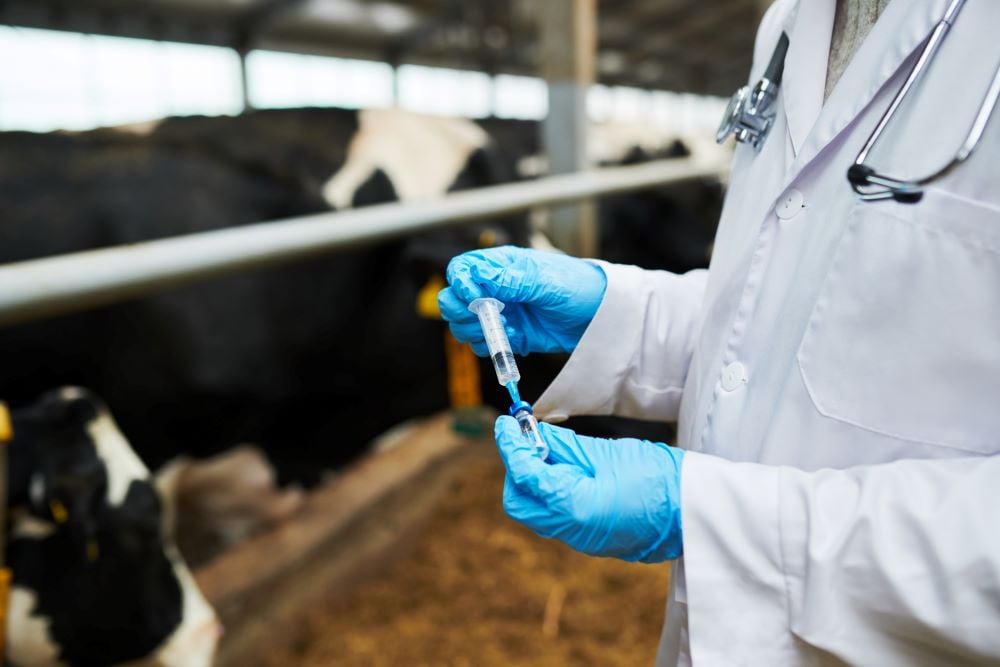DAFM urges vigilance as bluetongue spreads across Europe
The Department of Agriculture, Food and the Marine (DAFM) is urging livestock keepers in Ireland to be vigilant as bluetongue virus spreads to new regions of Europe and Britain.
The department said that the situation in Europe is "dynamic" and as a result "there is a real risk of bluetongue virus entry into Ireland".
The disease affect ruminant animals such as sheep, cattle, goats and deer and camelids like llama and alpaca.
Bluetongue virus is spread by infected biting midges which are present in Ireland and are generally most active during warmer months, between April and November.
DAFM said that as November approaches and temperatures decrease, midge activity in Ireland will now be lower over the winter.
However, the department noted that the risk of bluetongue transmission will increase in spring 2025 when temperatures increase, and midges become more active again.
Sheep are more likely to show obvious and more severe clinical signs of bluetongue than cattle if they become infected, and mortality rates can reach 30- 70%.
Bluetongue is a notifiable disease, therefore any suspicion of disease must be reported to the local Regional Veterinary Office (RVO) without delay.
There are different strains of bluetongue virus with BTV-3 the strain currently of most concern, as it is spreading rapidly across northwestern Europe.
As of October 18, a total of 143 of bluetongue serotype 3 (BTV-3) cases have been confirmed in sheep and cattle in England, including two in Wales since the first confirmed outbreak on August 26, 2024.
The Department for Environment Food and Rural affairs (DEFRA) has implemented restrictions around affected farms in Britain.
A large restriction zone encompassing several counties in England is currently still in force
Vaccination for BTV-3 has been authorised as an emergency measure in countries where BTV-3 is circulating.
However, DAFM said that these vaccines have not yet obtained European Marketing Authorisation, nor have they determined an immunity period guaranteed in the specifications of the vaccine.
As a result, animals vaccinated with the BTV-3 vaccines as part of emergency use do not currently meet the certification requirements and cannot be certified by EU member states to allow movement around the EU.
The importation of live ruminants from Britain to Ireland has been suspended by DAFM since the disease was detected in England in November 2023.
Importing livestock from other EU member states to Ireland is permitted only where detailed certification requirements to safeguard against bluetongue can be satisfied.
If a farmer is considering purchasing livestock from Europe, there is a risk that animals may not meet certification requirements for entry to Ireland due to disease outbreaks.
Movements of ruminants and germinal products from Northern Ireland are still permitted, subject to all of the usual conditions.
Germinal products, including semen, ova, embryos, may be imported from Britain into Ireland once the relevant animal health requirements for bluetongue virus can be certified.
The department said that it is important to note that importing semen from affected countries is not without risk.
The department has again advised that it will not pay compensation for animals infected by imported germinal products, nor for imported animals which subsequently test positive for bluetongue in the post entry sampling.
A new variant of the bluetongue virus (BTV-12) has been identified in a sheep in Kockengen, Netherlands.
The variant was identified as part of research by Wageningen Bioveterinary Research (WBVR) in the Netherlands and confirmed by The European Bluetongue Reference Laboratory in Madrid.
Genetically, the two bluetongue variants, BTV-3 and BTV-12, are unrelated and the origin of the new variant is currently unknown. There is no vaccine currently available for BTV-12.






